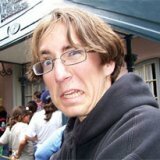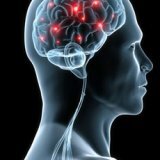ADHD: what it is, symptoms and treatment in children
Content
- What is attention deficit hyperactivity disorder (ADHD)?
- Symptoms
- Causes of occurrence
- Factors causing ADHD
- A correct and timely diagnosis of ADHD is important!
- How to behave correctly with a diagnosed baby?
- Can Attention Deficit Hyperactivity Disorder Be Cured?
- Related Videos
What is attention deficit hyperactivity disorder (ADHD)?
ADHD is a condition in which a child is unable to focus on anything and contain their impulsivity and hyperactivity.
The first mention of ADHD appeared in the late 19th century. Since 1992, the following groups have been classified:
- Attention Deficit Hyperactivity Disorder (ADHD)
- ADD (no hyperactivity)
- Hyperactivity (non-attention deficit)
- Mixed type (includes attention deficit hyperactivity disorder and impulsivity)
According to statistics, hyperactivity is one of the most common mental abnormalities in children. They suffer before 7% children of school and preschool age. Moreover, in Russia and the United States, the rate of this disorder is higher than in other countries and is
4-20%. The smallest percentage of children with symptoms of this psychological disorder in the UK is 1-3%.
Boys are more prone to ADHD. Boys are often diagnosed with hyperactivity disorder (no ADD).
Girls often have attention deficit hyperactivity disorder (ADD), and babies live in a fantasy world.
It is a mistake to believe that today this disease is affected more often than before. More information made it easier to identify symptoms in children and take timely necessary measures, since this is reflected in school performance, difficulties arise in determining one's place in society.
Symptoms

The first symptoms can be traced already in infancy. However, inexperienced parents can take it for granted that the baby whines a lot, is capricious, constantly "hanging in his arms." He has increased physical activity. The movements of the arms and legs are often chaotic. He has difficulty falling asleep and wakes up every now and then.
The baby may be bothered by headaches, which parents do not even know about, since he cannot yet say about it. There is a delay in speech.
However, all of these signs can be caused by other factors that are not related to the hyperactivity disorder. Therefore, only an experienced specialist can diagnose ADHD in infants.
ADHD is easier to diagnose in preschool children. Symptoms become more pronounced.
Parents notice that the child differs in his behavior from the surrounding peers, namely:
- gets hung up on his desires, demands their immediate fulfillment, becomes uncontrollable;
- does not give in to persuasion, is capricious and does not obey parents and educators in kindergarten;
- sometimes he is too sociable: he chatters and makes noise incessantly;
- cannot play quiet games;
- he is easily distracted, quickly forgets;
- unable to focus on performing even simple tasks;
- there is a feeling that the child does not pay attention to what is being told to him;
- is impatient;
- practically unable to sit in one place, is in continuous motion, like a wound top: spinning, jerking his legs, constantly trying to climb somewhere;
- it is difficult for him to communicate and play with other children.
The problem of ADHD is especially acute when the child goes to school. To sit at a desk for a whole lesson is an impossible task for him. During the lesson, he can easily get up and begin to move around the classroom, shout from the spot, without waiting for the teacher's question, interrupt.
The child's hyperactivity lasts no more than 15 minutes, then he loses interest, gets distracted, does outside business, not reacting to the teacher. At this moment, the child turns off, does not hear the teacher, and can perform actions that he will not later remember.
After a short break, while the brain is accumulating new energy, it is again actively involved in the work.
In order to be constantly conscious, the child needs to keep his vestibular apparatus in an active state - spinning, twirling, moving his head. A decrease in physical activity entails a decrease in brain activity.
The child is prone to frequent mood swings and depression. He often loses his belongings. Difficulties arise in relationships with peers. Children suffering from attention deficit hyperactivity disorder are generally considered to be lagging behind in school.
Read also:Multiple sclerosis: causes and symptoms
Concentration and organization problems make it difficult to achieve success in sports. All this leads to a decrease in self-esteem.
Causes of occurrence

Control over thoughts, feelings and body is carried out in the brain. The brain produces physiologically active substances (neurotransmitters) through which nerve impulses are transmitted to cells.
The brain sends and receives signals through these neurotransmitters. A change in the amount of these substances leads to the development of ADHD, the symptoms of which can be violently manifested, then subside.
In attention deficit hyperactivity disorder, the level of neurotransmitters in the brain may be insufficient. This means that not all signals resemble the distance from the brain to nerve cells. According to experts, this leads to the inability to control behavior, restrain impulses, and hold attention.
Depending on which part of the brain is affected, the child develops either increased hyperactivity, or a symptom of attention deficit, or heightened impulsivity. And in some cases, all at once.
ADHD affects the following parts of the brain:
- The frontal lobe cortex is responsible for focusing attention, assessing what is happening, planning and controlling impulsivity.
- Temporal lobes - They are associated with the accumulation of experience and memory.
- Basal ganglia - control attention switching, adaptation, emotions, speech and thinking development
- The limbic system is responsible for mood and emotional state.
- The cerebellum is responsible for the coordination of movements.
Based on the individual characteristics of each case, an appropriate approach and appropriate treatment are selected.
Attention deficit hyperactivity disorder is characterized by three symptoms:
- Attention deficit - inability of the child to concentrate and hold attention. Prevents students from focusing on school assignments, which is more of a negligence than a lack of ability or logic. Preschool children have difficulty maintaining interest throughout the game. Attention attracts everything around, but for a long time it does not linger on anything, moving from one subject to another.
- Hyperactivity - excessive looseness and disinhibition of movements, which leads to rapid fatigue. Hyperactivity in children is expressed in the inability to quiet games or activities. A hyperactive child prefers outdoor games that are reduced to running around. Speaks quickly, a lot, often shouts and argues. Hands are in constant motion: something twists, twirls, crumples, picks. Not able to stand still, shifting from foot to foot, ready to run at any moment.
It is noteworthy that children diagnosed with hyperactivity need external activation. Left alone, they will wander listlessly in a half-asleep state, not finding something to do, monotonously repeating any action. However, being in a group, they become overexcited and become inoperative.
Hyperactivity in children is often the cause of accidents and trauma.
- Impulsiveness - inability to control their desires, which leads to rash actions and frequent mood swings. The child interrupts teachers or parents, commits impulsive actions that can become a source of trauma for the child himself or others. It is impossible to predict what he will "throw out" the next minute, even he himself does not know this.
Factors causing ADHD
It is impossible to pinpoint the exact cause of ADHD. Doctors agree that the manifestation of symptoms is due to a combination of a number of factors:
- Heredity. ADHD can be genetically transmitted.
According to statistics, in one third of fathers suffering from ADHD in childhood, the child also adopts its symptoms. And if both parents were susceptible to the disease, the chance of detecting this disorder in the child increases.
- Premature birth. Premature babies are more likely to develop ADHD.
- Oxygen deficiency in the fetus. Microtrauma caused by oxygen deprivation can cause symptoms.
- Risk of miscarriage.
- Complications during childbirth, which can lead to internal brain hemorrhage or spinal injury in the fetus.
- Infectious diseases or brain injury in children.
- Asthma, diabetes, heart problems, and other factors that lead to impaired brain function.
- Smoking and excessive alcohol consumption, stressful state of the expectant mother during pregnancy.
- Difficult family environment. Frequent parental quarrels and screams can only worsen a child's symptoms.
- Wrong upbringing. Excessive severity of the child on the part of the parents. Or, on the contrary, excessive permissiveness.
- Lack of vitamins and minerals in the diet.
- Poisoning with lead or other toxins in early childhood
Read also:Tension-type headache
Having several of these factors increases a child's risk of developing this psychological disorder.
A correct and timely diagnosis of ADHD is important!

Noticing any nervous disorders in the child, it is necessary to immediately show the baby to a pediatric neurologist.
Any manifestation of pampering that goes beyond what is permissible may not be a manifestation improper upbringing or bad character, but be directly related to dysfunctions brain.
To identify the syndrome, the specialist initially collects information:
- looks to see if any of the child's parents was sick,
- how was the mother's pregnancy,
- what diseases the baby suffered.
Next, a series of tests is carried out, according to the results of which the doctor determines the level of inattention of the young patient. Testing is possible only in children who have reached 5 years and older.
An accurate diagnosis can be obtained only through a computer examination, which the attending physician prescribes for the little patient. With the help of an electroencephalogram, foci of disorders in the parts of the brain are detected and the vector of their direction is determined and, based on this, treatment is prescribed.
How to behave correctly with a diagnosed baby?
- Show more patience.
Such children react sharply to criticism. You cannot tell the child what to do and what not. It is better to present the remark to him in the form of friendly advice, suggest what should be done, or what would be nice if he did this and not otherwise.
For example, instead of saying: “Put your toys back in place now,” it’s better to say: “let's put the toys together, there will be more room for play”. Distribute space so that all items, be they toys, clothing, or school supplies, have their place. This will help your little one lose their belongings less often.
- Praise your child more often.
Praise from parents means a lot to any child. The words: "you are smart, we are proud of you" inspire the kid to feats. The child's self-esteem and self-confidence grows, in the love of others.
- Implement a reward system.
Children with hyperactivity tend to attract attention through bad behavior. They have to work hard to attract him with good behavior. Encourage your child when he does something good: was polite, did his homework, did not quarrel with other children.
You can enter a system of scoring points, which can later be exchanged for prizes or other privileges (time spent watching TV or computer, video games, favorite treats, etc.). This method has a positive effect on behavior correction, the main thing is that the baby knows that the reward must be earned, otherwise the prize loses its attractiveness, and hence the benefit.
- Child's bad behavior cannot be ignored.
By not paying attention to inappropriate behavior, you allow the child to think that everything is okay, this leads to further deterioration of the behavior. Inappropriate actions must be stopped immediately.
The punishment should be understandable and fair: if you didn't learn your homework, you don't play video games, you behave badly, you don't watch TV, you shouted and argued, you won’t get sweets, and so on. The kid should know and understand what he was guilty of and bear responsibility for it.
- Don't severely judge mistakes.
Explain to your child how he upset you, but do not use words such as "never" or "always." Try not to argue with the child, and even more so, you should not threaten or frighten with punishment. Don't shout even if you have to repeat the same thing over and over again. Speak calmly and kindly.
- Keep inhibitions to a minimum.
Of course, the child must know what is allowed and what is not. But a large number of prohibitions can cause negative reactions. It is only necessary to prohibit what is dangerous or harmful to the child himself or to those around him.
- Don't let him worry too much.
Help your child calm down if he is upset by something, distract him with good play. Read your favorite book. A soothing bath will have a positive effect, as the water is relaxing.
- Create a daily routine for your child and teach him to follow it.
Write simple, short instructions on how to do the duties and remind him to do a particular task if he suddenly gets distracted and forgot. But you need to do this gently, calmly.
Read also:Cephalgic syndrome (cephalalgia): what it is, causes, symptoms and treatment
Performing daily activities at a certain time will teach the child to be in order, and has a calming effect on the psyche. This will help you control your behavior and teach you how to plan your day. This habit will greatly help him in adulthood.
- Spend more time together.
Chat with your child about a variety of topics. Take an interest in his success in school, relationships with friends. Listen when your child tells you about something that excites him or makes an impression.
Let your baby know that what worries him is important to you. Play together, go for walks, read books, even just watch your favorite cartoon together. It is important for your child to know that you are interested in his life. That his parents are always there, by his side, helping and supporting him.
- Teach your child to make choices.
Ask him to choose clothes, food, or a toy. However, to make it easier for your little one, reduce the choices to two. Otherwise, it may turn out to be an extra reason for anxiety or overexcitement.
- Avoid distractions.
This is especially important during the child's class. In order not to distract him from completing school assignments, turn off the TV and other distracting gadgets, thereby helping to concentrate on a specific action.
- Find an activity for your child.
It is important that the kid can realize his abilities in some activity, to achieve a certain success in the intended goal. This will help raise his self-esteem and help develop social skills.
Can Attention Deficit Hyperactivity Disorder Be Cured?

With a timely and competent approach, it is quite possible to deal with attention deficit and increased hyperactivity.
Experts believe that there is little chance of a complete cure, but behavioral correction and attention control are quite achievable.
It is easier to achieve a positive result if you start at an early age. Treatment for hyperactivity in children usually ends in adolescence.
The best result can be achieved by complex treatment with both medications and psychotherapy.
- Among medications, the most common are psychostimulants. The lack of these drugs in the short-term action, so you need to take it every 4 hours. The pharmaceutical industry does not stand still, and more and more new drugs with a longer duration of action appear on the market.
Only the attending physician, taking into account the individual characteristics of the child, can prescribe the appropriate drug.
- It is good to alternate synthetic sedatives with soothing herbal decoctions. Tea with mint, chamomile, valerian roots has a positive effect.
- A balanced diet, rich in vitamins and minerals and omega-3 fatty acids, plays an important role.
- You cannot neglect the non-pharmacological method, which consists of a set of physical exercises and behavioral correction:
Physical activity has a big impact, especially in hyperactive children, helping them to throw excess energy in the right direction. However, it is important to choose the right sport, as some sports can have the opposite effect.
You should give preference to swimming, dancing, figure skating, ice skating, cycling. But one should not neglect the desires of the child himself.
- An important role is given to regular sessions with a psychologist. A specialist will help your child overcome self-doubt. A set of special exercises contributes to the development of memory and attention.
- In some cases, changing the environment can be beneficial by generating positive emotions.
For each individual case, a specific course of treatment is selected. The efforts of the baby's parents and the treating specialist must be properly coordinated.
The attitude of kindergarten teachers and teachers at school has an important influence. Only by combining the efforts of all people around the child can the effect of treatment be obtained.
With age, hyperactivity in children may pass or recede into the background, but attention deficit and impulsivity persist into adulthood. As a result, difficulties in social communication and low self-esteem interfere in career and personal life. These people suffer from depression, they have a higher propensity for drug addiction.



